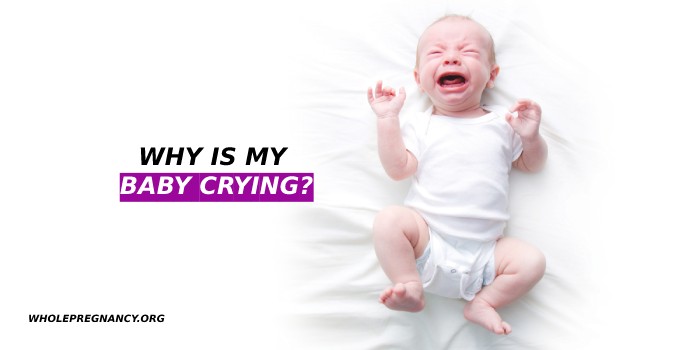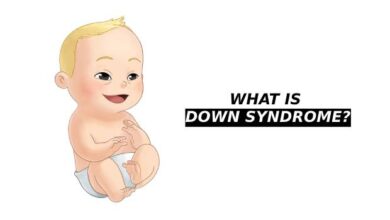Why is my Newborn Baby Crying

What to expect with Newborn baby
The primary method of communicating of a newborn baby is by crying. Even if you’re asleep, it can be a signal to you to get up and move. It can also trigger your let down reflex if you are a breastfeeding mom. The peak time for crying is between 6-8 weeks.
It is difficult to bear the intense crying of a newborn, but it will pass. Babies cry for on average nearly three hours per day. Some babies cry much longer. Although most of the crying and fussing happens in the afternoon or evening, it is likely that every day will be different. Baby’s spend less time crying as they get older. It is also more common for crying to spread throughout the day. It’s also easier to understand the needs of babies when they cry. Your newborn baby is learning about the world around him. Your baby learns a lot from you by how you react to their behaviours, particularly when they cry.
They may discover that crying can lead to someone coming to their aid. It could be a nappy, a feeding, or cuddle. Baby will soon learn that the world can be a good place if this happens. Your baby will likely cry less frequently if you respond quickly when they are crying. You can pick up your baby if they are crying. This helps your baby feel secure and knows that you are nearby.
Tips For Managing Newborn Crying Baby
If your baby is crying a lot, it could be frustrating, upsetting, and overwhelming . You can take a break until your baby calms down. You can either place your baby in a safe area like a crib or ask another person to help you. These ideas may be helpful for you and your baby.
- You can reduce the stimulation around your baby by sitting down in a quiet room with dimmed lights.
- Wrap your baby in a blanket or wrap it. This will make your baby feel safe.
- A gentle, soothing tune is a good choice. Your baby will recognize your voice and prefer it to other sounds.
- Place your baby on its back and pat it gently. If they fall asleep, gently turn them onto their back.
- Put in some imaginary earplugs. Allow the sounds of your baby’s crying to pass and remember that you are doing everything you can for them.
- Take your baby on a stroll in a pram or sling. Sometimes movement can be soothing.
- Play white noise with a fan, or on the radio. This can help settle your baby.
- Our illustrated guide to soothing a crying child is clearly laid out.
When to Get Help For a Newborn Baby Crying
As your baby learns more about the world, and is able to communicate with you what they need, it becomes easier to deal with crying. It becomes easier to understand the baby’s cues and body language. You know your baby better than anyone, so talk to your doctor if your baby is crying. Every child has the right to safety and protection. If you feel you are unable to cope, or fear that your child might be hurt, seek help.
Newborn Crying Baby – Prior to 3 Months of Age
What is your newborn’s symptom?
- You don’t understand why a baby under 3 months old is crying.
- Crying is the only sign
- Colic, a type of crying that is frequent and loud, is also included
- Go to this care guide if you are experiencing crying due to illness or another symptom.
Unexplained Baby Crying
- Baby hungry. This is the most common reason babies cry. They stop crying when they eat. They are usually happy by the time they finish eating.
- Baby that is tired. This is the second reason why babies cry. Their parents must put them in a comfortable place. They may have to be wrapped in blankets and placed on their backs. They may fuss a bit and then fall asleep.
- Too Much Milk. Sometimes babies cry from a bloated stomach due to overfeeding. Too much milk can cause temporary discomfort, but not gas.
- Caffeine. Caffeine can increase crying and make it difficult to fall asleep. Breastfeeding mothers should limit their caffeine intake.
- Clothing. Too hot or too cold can cause a baby to cry. Too tight clothing can make babies cry.
- Dirty Diaper. Stoop is extremely irritating to the skin. It can cause burning and pain if not removed.
- Colic. Colic causes recurrent crying in the first months. Every baby has some level of fussy crying. This is called colic if it lasts more than 3 hours per day. They are happy if they don’t cry.
- Pain (Serious). Possible causes of pain include a burning sensation in the ears, mouth ulcers or raw diaper rash. A penis ulcer may cause crying and pain. These babies may cry often and not be happy if they’re not. To be diagnosed, they need to visit a doctor. Fever in this age range is serious unless it’s proven otherwise. Shaken baby syndrome is an issue.
Myths about Crying Causes
- Not due to gas. Gas passing through the normal intestines doesn’t cause pain or cry. Gas is a common cause of crying in babies. There are also lots of gassy sounds from their stomachs. Gas is formed when air is swallowed. Normal gas. It doesn’t get trapped or cause pains. Burping a baby does not help with crying. Blaming gas for crying is a myth.
- It’s normal. Spitting is not a problem. It doesn’t cause colic or crying. They do not relieve heartburn in babies who are crying. Side effects can also occur.
Definition of Colic Crying
- Many crying, sometimes more than once per day
- Consolable when held or comforted.
- Between bouts of crying, acts normal (happy and contented).
- The baby is eating enough and is not hungry
- The baby is healthy
- Most often, they occur before the age of 2 weeks.
- Usually, it disappears within 3 to 4 months.
When to call For Help for Crying Baby
Call 911 when :
- Very weak or not moving
- Your child is in a life-threatening situation
Get Care Now or Call Doctor
- Age below 1 month and acts or looks abnormally
- A fever in a baby younger than 12 weeks of age. Warning: Do not give fever medication to your baby before they are seen.
- Bulging or swollen soft spot
- Swollen scrotum or groin
- Vomiting
- Crying when your baby is touched, moved or held
- It could be an injury
- If your baby is crying nonstop for more than two hours, it can be very distressing. This Care Advice is not enough to console your baby.
- Do not consume alcohol or drink very little for longer than 8 hours
- Fear that someone could hurt or shake your baby
- High-risk child (such a with brain or heart disease)
- Your child acts or looks very sick
- Your child is not being seen and you feel the need to take action.
Call Doctor within 24 Hours
- It seems like you are not losing weight or feeling hungry
- Your baby may cry again, but you can console him. If you do not know the reason why your baby is crying and he won’t cease.
- All the crying makes you tired.
- Your child may not be in urgent need of your attention, but you think it is.
Call Doctor During Office Hours
- You have never checked your baby for excessive crying
- After 1 month, crying began
- Three or more times a day, crying is common
- Other questions or concerns?
Self-Care at Home
- All babies can cry normal
- Colic (Excessive crying when a well-behaved baby is not being soothed)




